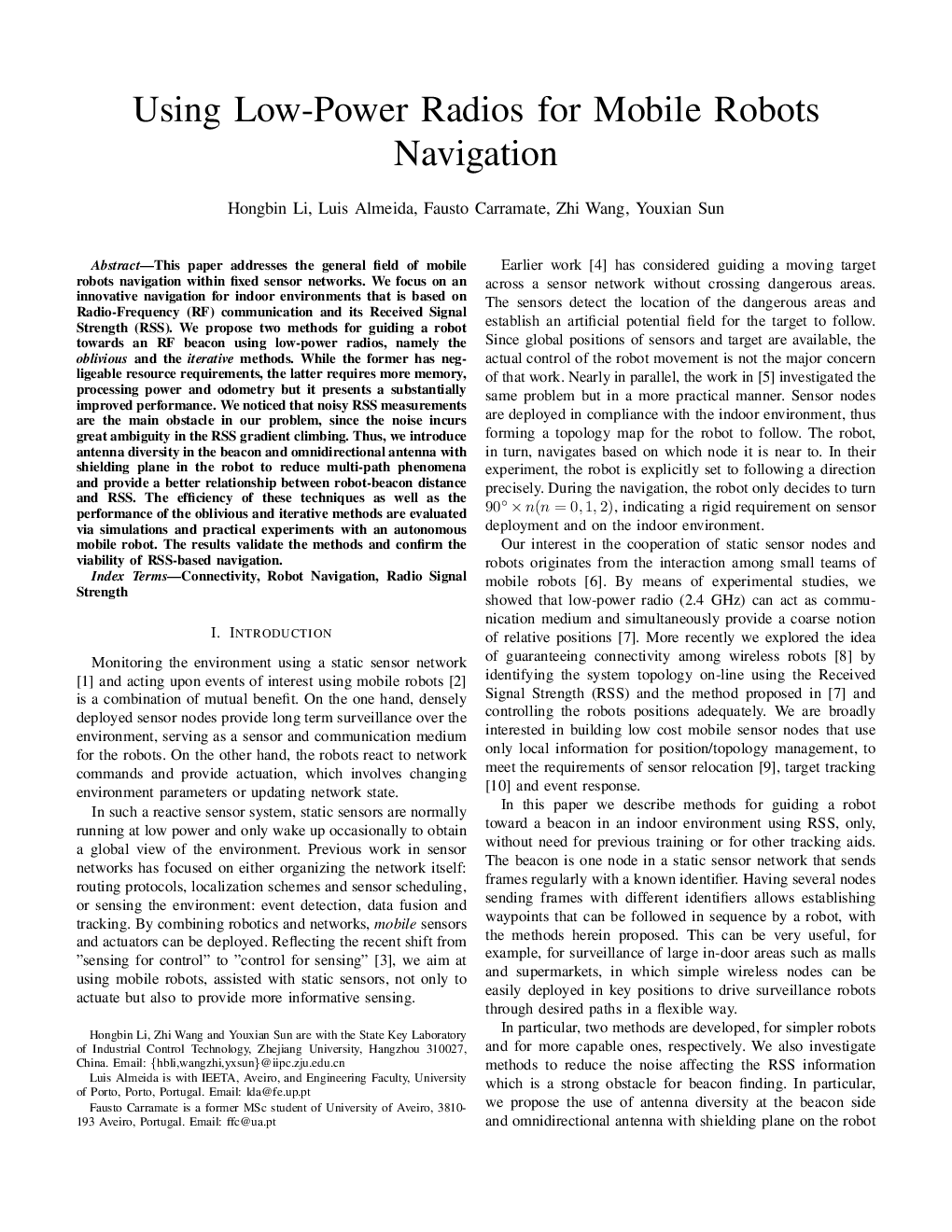| Article ID | Journal | Published Year | Pages | File Type |
|---|---|---|---|---|
| 721784 | IFAC Proceedings Volumes | 2009 | 8 Pages |
This paper addresses the general field of mobile robots navigation within fixed sensor networks. We focus on an innovative navigation for indoor environments that is based on Radio-Frequency (RF) communication and its Received Signal Strength (RSS). We propose two methods for guiding a robot towards an RF beacon using low-power radios, namely the oblivious and the iterative methods. While the former has negligeable resource requirements, the latter requires more memory, processing power and odometry but it presents a substantially improved performance. We noticed that noisy RSS measurements are the main obstacle in our problem, since the noise incurs great ambiguity in the RSS gradient climbing. Thus, we introduce antenna diversity in the beacon and omnidirectional antenna with shielding plane in the robot to reduce multi-path phenomena and provide a better relationship between robot-beacon distance and RSS. The efficiency of these techniques as well as the performance of the oblivious and iterative methods are evaluated via simulations and practical experiments with an autonomous mobile robot. The results validate the methods and confirm the viability of RSS-based navigation.
